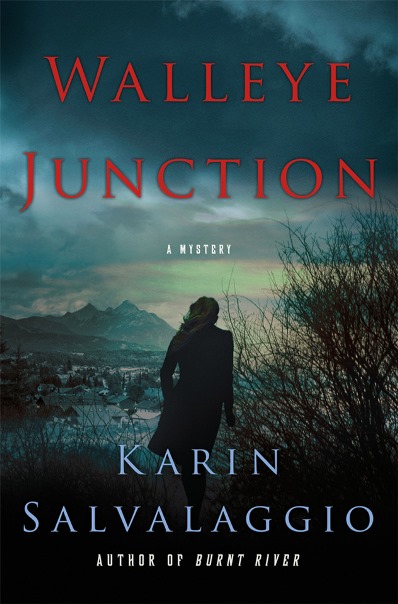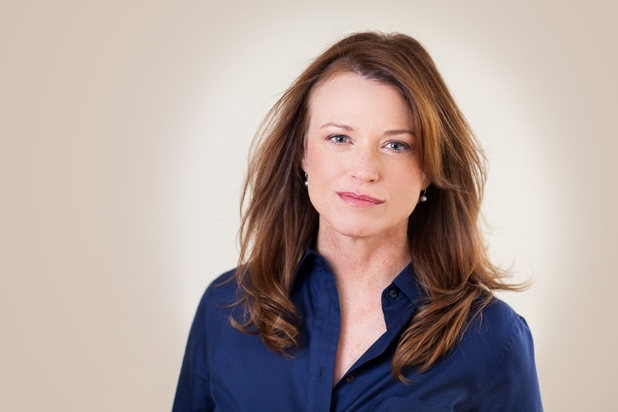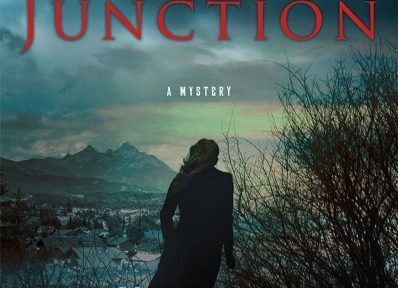This post was contributed by Melanie Jones of The Mechanics’ Institute Review. This month the Birkbeck Creative Writing department launched its new website The Mechanics’ Institute Review Online. This year marks a huge success for the Creative Writing MA as ten alumni have novels coming out this year.
To celebrate these achievements we are profiling a selection of the authors and extracts from their upcoming novels will appear on MIROnline. Here, Melanie Jones speaks with alumnus Karin Salvalaggio, about her latest novel, Walleye Junction (Minotaur, May 2016)
Read an extract of the book at MIROnline
 MJ: Walleye Junction came out in May this year and is the third novel in the Macy Greeley Mysteries series. Can you give us a brief introduction to the novel?
MJ: Walleye Junction came out in May this year and is the third novel in the Macy Greeley Mysteries series. Can you give us a brief introduction to the novel?
KS: Walleye Junction is the third book in a series of crime novels set in northern Montana. The stories follow a special investigator named Macy Greeley, a single mother struggling to balance career and home life. She’s often on the road and when the book opens she’s in Walleye Junction, a rural community that lacks the necessary infrastructure to deal with a major crime. Members of one of Montana’s private militias are suspected of kidnapping and murdering a controversial radio talk show host named Philip Long. When two of the kidnappers turn up dead of a massive heroin overdose the local authorities believe the case is solved, but Macy has doubts. A cryptic email message points the investigation toward the murky world of prescription painkiller abuse and Philip Long’s estranged daughter is beginning to think there’s a link between her father’s murder and a school friend’s death 12 years earlier.
Did you always intend to write a series of novels or did this come about organically?
The series came about organically. I started writing the opening novel, Bone Dust White during my first year at Birkbeck where I was working toward an MA in Creative Writing. I never intended to write a ‘crime novel’ and saw this first book as a standalone, but life has a way of throwing up unexpected opportunities. Early versions of Bone Dust White were far more ‘experimental’ and infinitely less publishable. Looking back I’m relieved most of it ended up on the cutting room floor. The result is far more accomplished. Bone Dust White is a taut thriller with a strong sense of place and a cast of characters that feel authentic. I’m very proud of how far I stretched the genre in a debut novel. I’m now writing the fourth book in the series and it’s probable there will be more in the future. I don’t get bored because each book has its own personality and unique set of challenges. The only constant is Macy but she too is slowly evolving. It is the locations, characters and plotlines that change radically with each new publication.
What do you enjoy most about writing crime fiction?
I suppose I should now hold my hand up high and admit that I have an unhealthy fascination with the darker side of human nature. I read crime fiction but am often turned off by the gratuitous violence and the unending parade of serial killers stalking young girls. I prefer a good psychological thriller with authentic characters, a believable storyline and zero time spent in the morgue. I try to base my books on issues that are prevalent to small town America. Burnt River features returning war veterans who are suffering from PTSD and Walleye Junction touches on the prescription painkiller and heroin epidemic that is presently crippling America. Gun crime, drug abuse, sex trafficking, right wing militias, traumatised war veterans, unemployment and general disillusionment are all elements that feed into my novels. I like to create a point of tension that can no longer be sustained and drop an inciting incident into the middle of it. Throw in a bit of small town politics and a population that is barely hanging on and you’ll find the plenty of stories in the reckoning that follows.
The short story, Walleye Junction, was published in The Mechanics’ Institute Review in 2011. Are the novel and short story connected?
The short story, Walleye Junction, is actually connected to the whole series, as its setting and tone provided much of the original inspiration. I didn’t attempt a direct adaption until the third novel because I needed some distance from the source material. Redrafting it into a longer format would require making a lot of changes to a short story that meant a great deal to me. There was little room for sentimentality. A lot of ‘darlings’ died while writing this book.
The short story follows a young woman who is returning home to a rural community after years of estrangement. She has to cope with both her father’s death and the many unresolved issues she’s left behind. Much of the storyline is left to the reader’s imagination. We don’t know the cause of her father’s death or why she was forced to leave town in the first place. We only know that she’s been unfairly blamed for the death of a friend who died of a drug overdose sixteen years earlier. The novel puts these mysteries to rest.
In the beginning I tried to stay true to the short story’s plotline but I ended up making some major changes. Try as I might, I couldn’t make the original ending work. It was too sentimental. The young woman had changed too much over the course of the novel. She refused to bend to the ending I’d originally set up for her. I tried writing it a dozen different ways but to no avail. I ended up changing it radically. It is now much more subtle.
Can you tell us a little bit about your writing process?

Karin Salvalaggio
Anyone who writes seriously spends a great deal of time sitting in a desk chair in front of a computer. If you’re not writing, you’re doing research. If you’re not doing research, you’re doing admin. There’s no garret in Paris and I’ve not smoked a Gitane in years. It’s actually a lot like running a small business. If you’re going to stay on top of ancillary writing commitments, social media, your finances (such as they are) and your relationships within the industry it pays to be highly organised.
I’ve written 4 books in 5 years. I’m not one to skimp on quality so that means I work long, hard hours. Though I have an idea of how I’d like things to go I never plot out my novels ahead of time. I create a place, a cast of characters and an inciting incident. After that anything goes. I try not to think too much about outcome when I’m working as I feel it’s better to be a little lost on the page. When I’m writing freely I tend to find the most surprising and interesting storylines. This strategy has its setbacks. There is a lot of waste. Thousands and thousands of words get thrown out. I’m far more brutal than I was when I started. Instead of saving it in a file, I simply hit delete. It’s strangely liberating.
I get up as early as 4 in the morning if I’m on a roll, but usually the alarm goes off at 7. I make a vat of black coffee, eat some breakfast and sit down to work. I’m lucky to have a beautiful home so I rarely feel the need to write anywhere else. In summer there’s a little house at the end of the garden. In the winter I’m in my office, at the kitchen table or on the window seat in the front room. I’m a bit of a social media junky so I have to be sure to shut down everything if I want to get the word count up. If I need to clear my head I take my dog for a walk. I’m pretty sure people think I’m going crazy as I sometimes talk to myself when I’m trying to work out an issue I’m having with a book. Thankfully, the dog doesn’t seem to notice. Generally speaking, I work on new stuff in the morning and edit it in the afternoon. Interjected within these hours are bouts on social media and something I like to call my ‘real life’.
How did the Creative Writing MA at Birkbeck affect you as a writer and do you have any advice for current students of creative writing?
I owe a great deal to the Creative Writing course at Birkbeck. I went in with zero confidence and I came out believing it was just a matter of hard work and time and I would be published.
I found the ‘work-shopping’ modules to be invaluable. It was how I learned to look at my work and the work of others more critically. It was also my first chance to see how readers really viewed my writing. Most of the students were incredibly generous with their time and feedback and I tried hard to reciprocate. Much of the course’s success depends on student participation. I’m not sure it’s the norm but I’d say I was in a particularly good year group. The cooperative approach to learning created an atmosphere that was surprisingly intimate. I made some very close friends during my studies at Birkbeck.
My advice to current students is that you’ll only learn if you listen. If everyone is telling you it’s not working, it’s probably time to put your ego aside and stop resisting. Some students would argue against every criticism that was thrown their way. I always wanted to ask them why they were on the course if they had no interest in improving their work.
Can you tell us about your current writing? What’s next?
I’m pretty much finished with the fourth novel in the series. It is tentatively entitled Silent Rain and will be out in May 2017. The storyline was originally inspired by Joyce Carol Oates’ novella Beasts but I’ve made so many changes that the source is barely recognizable. It’s an ambitious project. I’ve been a huge fan of Oates for years so have even more reason to get things right.
My next novel will be a standalone, which I’m hoping to work on between my other writing commitments. Though it’s a thriller, it will be set in London and Suffolk so will have a completely different feel. If I want to get a solid first draft done in a timely manner it will mean writing two books in one year. It sounds like a pretty insane thing to do but I’m determined to try. I need to get my head out of Montana for a while. I want to write about the city I live in and the characters I meet everyday.
…
Karin Salvalaggio was born in West Virginia in the 1960s. Her father was career military and her mother was a homemaker. Karin has fond memories of her nomadic childhood – the hours spent on the road, the anticipation of a new life, the unpacking of the old one. She’s lived in places as climatically diverse as Alaska and Florida and as culturally distinct as California and Iran. Karin attended the University of California Santa Cruz, graduating in 1989, but aside from two years in Italy, she has lived in London, England since 1994.
She has an MA in Creative Writing from Birkbeck, University of London. Her short story “Walleye Junction” was published in the Mechanics Institute Review in 2011. Bone Dust White was her first full-length novel. Her second novel Burnt River was published in 2015. Walleye Junction will be available on May 10th.
- Website: karinsalvalaggio.com/
- Twitter: @KarinSalvala
- Facebook: www.facebook.com/KarinSalvalaggio

Melanie Jones
Melanie Jones graduated from the Birkbeck Creative Writing MA in 2015. She is the Managing Editor of MIROnline and a member of the MIRLive Team. She was a member of the editorial team for The Mechanics’ Institute Review, Issue 12.

